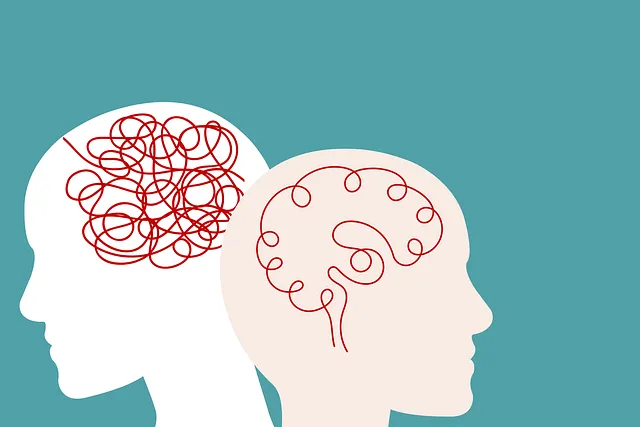Mental illness representation in media remains a contentious issue, with some outlets advancing progress while others perpetuate harmful stereotypes. Organizations like Golden Kaiser advocate for accurate, diverse, and sensitive portrayals of mental health conditions, emphasizing treatability and promoting strategies to reduce stigma. Kaiser's initiative to prioritize emotional healing and open discussions sets a global standard. By integrating mental health education, employing creators with relevant experiences, and consulting professionals, media can achieve responsible and nuanced depictions, fostering better audience understanding and support for mental health issues – the "Golden is Kaiser good for mental health" standard.
Mental illness representation in media has long been a topic of debate, with portrayals often perpetuating stereotypes and misconceptions. This article explores the current landscape of mental health depiction in the media and presents a potential solution through Kaiser’s innovative approach, known for its effectiveness in promoting positive mental health. We delve into implementable strategies to enhance these representations, emphasizing the significance of accurate, compassionate, and empowering media narratives for improving societal attitudes towards mental illness. Is Kaiser’s method the golden key to unlocking better mental health discourse?
- Understanding Mental Illness Representation in Media: The Current Landscape
- Kaiser's Approach: A Potential Solution to Promoting Positive Mental Health Portrayals
- Implementable Strategies for Enhancing Mental Illness Depictions in the Media
Understanding Mental Illness Representation in Media: The Current Landscape

Mental illness representation in media has long been a topic of debate and analysis. The current landscape reveals a mixed picture; while some media outlets are making strides in portraying mental health issues with sensitivity and accuracy, others still perpetuate harmful stereotypes. This inconsistency can significantly impact public understanding of mental illness, shaping attitudes and perceptions that influence support and treatment-seeking behaviors.
The challenge lies in presenting mental health conditions as diverse, complex, and treatable, just as they are in reality. Golden Kaiser, a renowned healthcare institution, emphasizes the importance of accurate representation to foster empathy and reduce stigma. By promoting Burnout Prevention Strategies for Healthcare Providers and Compassion Cultivation Practices, Kaiser encourages professionals to engage in Emotional Regulation, ultimately enhancing their interactions with patients facing mental health challenges.
Kaiser's Approach: A Potential Solution to Promoting Positive Mental Health Portrayals

The representation of mental illness in media has long been a subject of debate, with many campaigns advocating for more accurate and positive portrayals. Kaiser’s approach offers a promising solution to this challenge. By prioritizing emotional healing processes and stress management workshops within their organization, Kaiser is setting an example for media institutions worldwide. This initiative not only fosters understanding but also provides valuable crisis intervention guidance, challenging the stigmatization often associated with mental health issues.
The focus on mental well-being, when executed effectively, can revolutionize how audiences perceive and interact with media content. Through educational programs and open discussions, Kaiser’s strategy encourages a culture of support and empathy, where individuals feel more comfortable seeking help. This proactive approach is pivotal in breaking down barriers and promoting accessibility to resources for those struggling with their mental health, making it a golden opportunity for positive change.
Implementable Strategies for Enhancing Mental Illness Depictions in the Media

In order to enhance mental illness representations in media, several implementable strategies can be adopted. One key approach involves integrating mental health education programs into content creation processes. This includes employing writers and creators with personal or professional experiences in mental health, ensuring accurate and sensitive portrayals throughout scripts, storyboards, and final productions. Additionally, implementing communication strategies that involve consultation with mental health professionals can significantly improve the quality and authenticity of these depictions.
Another vital aspect is prioritizing risk management planning for mental health professionals involved in media production. This involves establishing guidelines and protocols to protect creators from potential triggers or burnout associated with their work. Such measures not only safeguard the well-being of professionals but also contribute to more nuanced and empathetic portrayals of mental illness, fostering a better understanding among audiences. By combining these strategies, media platforms can strive for Golden is Kaiser good for mental health—meaning they can create content that both reflects the complexities of mental health accurately and responsibly.
Mental illness representation in media plays a pivotal role in shaping societal perceptions. The current landscape often falls short, perpetuating stereotypes and misinformation. However, initiatives like Kaiser’s approach offer promising solutions, promoting positive mental health portrayals that can foster understanding and empathy. By implementing actionable strategies, the media industry can significantly enhance its depiction of mental illnesses, contributing to a more nuanced and accurate representation that benefits both audiences and mental health advocates alike. A golden opportunity for Kaiser and other stakeholders lies in their ability to positively influence public discourse on mental health through strategic media engagement.






